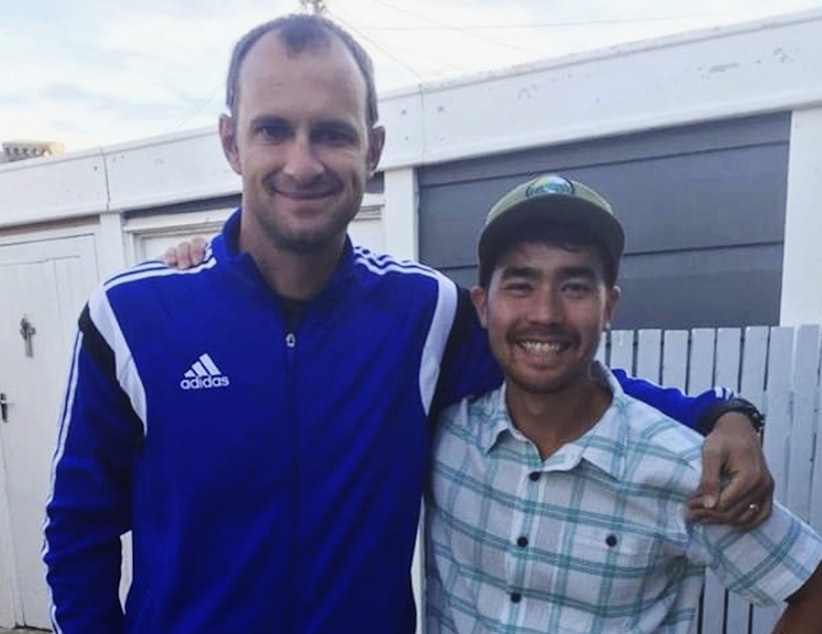'They did not want him there, and he came anyway.' A missionary killed abroad

Last week, an American missionary from Washington state named John Allen Chau attempted proselytize to a tribe on North Sentinel Island, far off the coast of India, in defiance of both missionary ethics.
The North Sentinelese have strongly resisted contact with outsiders, and Chau was killed on the island. Kate Carte, a history professor at Southern Methodist University, told KUOW's Bill Radke that Chau's actions, while intended as acts of love, were, to her, a form of terrorism.
Bill Radke speaks with Southern Methodist University history professor Kate Carte.
Interview highlights
Why Kate Carte calls Chau's actions an act of terrorism
When I thought of what Chau was doing, I looked at it in the context of the early American history that I study, and I saw him as representing American power – not explicitly, those weren’t his personal motives. But as an American, as a person who was funded by Americans, he represented that in many ways to the people he was trying to missionize.
It looked to me like a violent act. They did not want him there, and he came anyway.
We should think carefully about how our actions are perceived in the world. Let’s just say his actions didn’t sit well with me.
The reason to be provocative here is to ask people to think about whose motives are most important here. We only consider motives of some people, not of all people. So we’re taking time to talk about his motivations, and we’re taking less time to talk about why the people on North Sentinel didn’t want to have him come, and what is the historical experience of those people, what is the historical experience of indigenous peoples in many places when other well-meaning or not well-meaning people come in their path.
The reason I think the word ‘terrorist’ is appropriate to work with – obviously it’s not a legal category in this sense – is because I’m not really interested in his motives. I think what’s important to think about is the people he was acting towards. They should be the people getting our attention in this.
Sponsored
What he viewed as a loving act may have been viewed as an act of violence for them. If we think about the terrorists who have attacked the United States, do we really care what they believed?
Avoiding the “stone age” label
How we characterize people is really essential, and we should listen to the kinds of assumptions we’re putting into those terms. So I have certainly seen archaeologists push back against calling the North Sentinelese ‘stone aged’ because there probably were people in that area during the Stone Age.
But we are no longer in the Stone Age. They are certainly aware that there are other tools out there that they are choosing not to use.
So they are not stone aged people, they are people of 2018 just like the rest of us who have made a different set of choices about how they want to protect their culture than we have.
Sponsored
I think you can extrapolate from that to a cautionary tale about how we talk about indigenous peoples in the United States today. That if we assume that indigenous people existed in some time in the past and that true indigenous people held to a set of practices, then we overlook the very real presence of people among us who are full people and evolve with time and are engaged in the same kinds of political and social challenges that we all are.
Modern missionary work
I do know from my colleagues who are who are devout Christians, who are committed to missionary work, there’s a very robust conversation about how to do missionary work in a way that does not harm people.
In any circumstance I think that thoughtful missionaries would be in a dynamic conversation with the people around them. But what I really want to do is to defer to those communities, as to all development communities.
I think the ethical issues that we’re talking about are really complicated and I don’t want to oversimplify them. I don’t want to say there’s one right way or one wrong way.
Sponsored
Produced for the web by Kara McDermott

